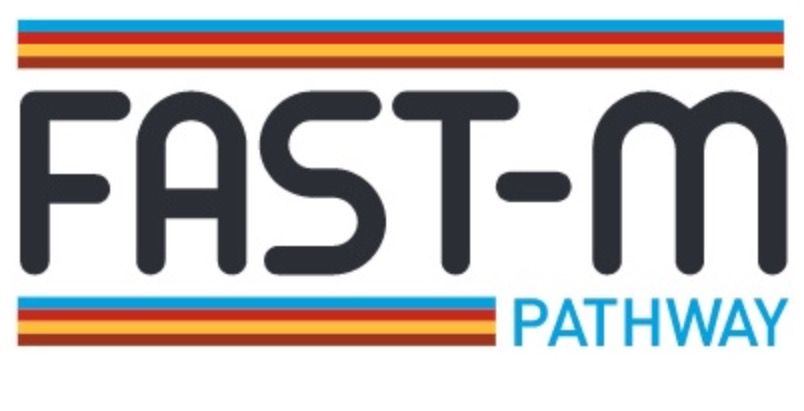Ammalife invests in research to find effective and practical solutions.
We support midwives and doctors to undertake careful research to find out what really will make a difference.
Here you will find out more about this research and the practical impact it is having on the ground.
Welcome to our Learning Hub!
Ammalife invests in research to find effective and practical solutions.
We support midwives and doctors to undertake careful research to find out what really will make a difference.
Here you will find out more about this research and the practical impact it is having on the ground.
Antibiotics in miscarriage surgery (aims) trial
Infection following miscarriage surgery is a problem affecting over 33 million pregnancies each year. A majority of women will have their miscarriage managed with surgery to empty the womb. Infection can occur following this surgery and this is a particular problem in low income countries. In some low income countries the rates of infection following miscarriage surgery are as high as 30%. These infections can result in death, serious illness or long-term health problems.
Currently international and national medical guidelines do not recommend antibiotics to be given routinely in miscarriage surgery because there is no evidence that tells us that this is effective. The AIMS trial proposes that if antibiotics are given just before the procedure of miscarriage surgery this may reduce the chance of infection occurring. This is being tested in the form of a large clinical trial conducted in four low income countries (Malawi, Tanzania Uganda and Pakistan).
Infection following miscarriage surgery is a problem affecting over 33 million pregnancies each year. A majority of women will have their miscarriage managed with surgery to empty the womb. Infection can occur following this surgery and this is a particular problem in low income countries. In some low income countries the rates of infection following miscarriage surgery are as high as 30%. These infections can result in death, serious illness or long-term health problems.
Currently international and national medical guidelines do not recommend antibiotics to be given routinely in miscarriage surgery because there is no evidence that tells us that this is effective. The AIMS trial proposes that if antibiotics are given just before the procedure of miscarriage surgery this may reduce the chance of infection occurring. This is being tested in the form of a large clinical trial conducted in four low income countries (Malawi, Tanzania Uganda and Pakistan).

The British Journal of Obstetrics and Gynaecology
The British Journal of Obstetrics and Gynaecology (BJOG) is an editorially independent publication owned by the Royal College of Obstetricians and Gynaecologists.
The progesterone in spontaneous miscarriage (prism) trial
The PRISM trial is an important research study which is looking at whether progesterone can prevent miscarriage in women with early pregnancy bleeding. The aim of the trial is to provide robust evidence to the medical community to potentially change current guidelines and practice. More than 2,200 women have already been recruited to the study from more than 40 research sites nationwide, and the scientific team has recently achieved outstanding feedback from independent trial committees and participants alike.
“Excellent figures. Superb!” Independent trial committee member.
“Awesome! Keep going.” Independent trial committee member.
“I was signed up to the PRISM trial after having bleeding in early pregnancy. After experiencing three miscarriages since the birth of my son it was a relief to feel like we were doing something proactive in this pregnancy. I obviously don’t know whether the trial made a difference to this pregnancy’s outcome, but I was absolutely delighted when our baby daughter was born. We’ve waited two years for her arrival and experienced a lot of heartache along the way so I just wanted to say thank you for offering hope to more parents through these trials.” Faye who took part in the PRISM trial.
The PRISM trial is an important research study which is looking at whether progesterone can prevent miscarriage in women with early pregnancy bleeding. The aim of the trial is to provide robust evidence to the medical community to potentially change current guidelines and practice. More than 2,200 women have already been recruited to the study from more than 40 research sites nationwide, and the scientific team has recently achieved outstanding feedback from independent trial committees and participants alike.
“Excellent figures. Superb!” Independent trial committee member.
“Awesome! Keep going.” Independent trial committee member.
“I was signed up to the PRISM trial after having bleeding in early pregnancy. After experiencing three miscarriages since the birth of my son it was a relief to feel like we were doing something proactive in this pregnancy. I obviously don’t know whether the trial made a difference to this pregnancy’s outcome, but I was absolutely delighted when our baby daughter was born. We’ve waited two years for her arrival and experienced a lot of heartache along the way so I just wanted to say thank you for offering hope to more parents through these trials.” Faye who took part in the PRISM trial.

The Lancet
The Lancet is a weekly peer-reviewed general medical journal. It is among the world’s oldest, most prestigious, and best known general medical journals
Carbetocin room temperature stable (rts) trial
Postpartum haemorrhage – heavy bleeding after childbirth – is the leading cause of maternal mortality in low-income countries. It causes nearly a quarter of all deaths from complications of pregnancy and childbirth in sub-Saharan Africa and Asia. The Carbetocin RTS trial was commissioned by the World Health Organisation to test carbetocin RTS for preventing postpartum haemorrhage. The project will recruit 30,000 participants from around the globe (more than 7,000 already randomised).
Postpartum haemorrhage – heavy bleeding after childbirth – is the leading cause of maternal mortality in low-income countries. It causes nearly a quarter of all deaths from complications of pregnancy and childbirth in sub-Saharan Africa and Asia. The Carbetocin RTS trial was commissioned by the World Health Organisation to test carbetocin RTS for preventing postpartum haemorrhage. The project will recruit 30,000 participants from around the globe (more than 7,000 already randomised).

The Cochrane Library
The Cochrane Library (ISSN 1465-1858) is a collection of databases that contain different types of high-quality, independent evidence to inform healthcare decision-making.
FAST-M – testing our ‘toolkit’ to tackle sepsis in childbirth
Sepsis is a life-threatening response to infection and is one of the biggest killers of mothers worldwide. Our work in Malawi has shown that women are dying unnecessarily because systems are not in place to identify and treat sepsis quickly and effectively. We know from other countries that survival can be doubled if the right care is delivered early.
This year, we have supported the development of a package of care suitable to treat maternal sepsis in Malawi. Following in-depth research, involvement of a wide panel of experts, in-country consultation with patients, healthcare workers and the Malawi ministry of health, a care package to combat life-threatening maternal sepsis in Malawi has been developed. Preparations are now underway for the package to be carefully tested in key pilot sites in Malawi before it can be rolled out country-wide. This will include the provision of training and resources to better identify and treat sepsis, ultimately saving mothers’ lives.
Sepsis is a life-threatening response to infection and is one of the biggest killers of mothers worldwide. Our work in Malawi has shown that women are dying unnecessarily because systems are not in place to identify and treat sepsis quickly and effectively. We know from other countries that survival can be doubled if the right care is delivered early.
This year, we have supported the development of a package of care suitable to treat maternal sepsis in Malawi. Following in-depth research, involvement of a wide panel of experts, in-country consultation with patients, healthcare workers and the Malawi ministry of health, a care package to combat life-threatening maternal sepsis in Malawi has been developed. Preparations are now underway for the package to be carefully tested in key pilot sites in Malawi before it can be rolled out country-wide. This will include the provision of training and resources to better identify and treat sepsis, ultimately saving mothers’ lives.

